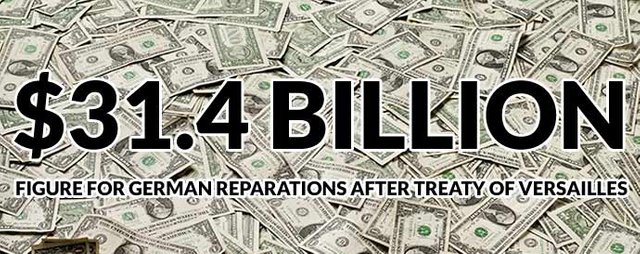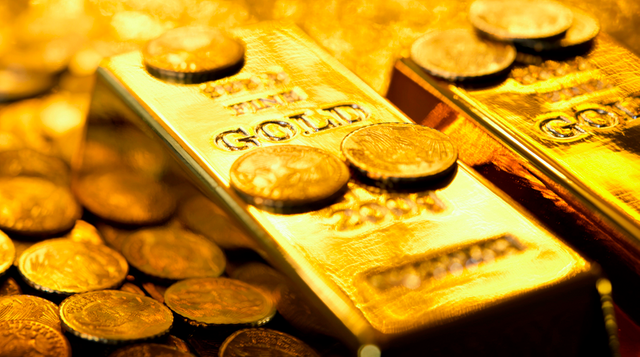Economical crisis of Germany after WW1 explained!
.jpg)
At the beginning of the war Germany went off the gold standard and its citizens could not redeem marks with gold or silver. Because the war war expensive (war is always expensive )Germany printed a lot of marks to "pay" for it and before the war ended the amount of marks in circulation quadrupled.
During war people tend to save anything they can because war is time of uncertainity. Thanks to that the inflation was not felt at first but as soon as the war ended confidence returned and people started spendind again. The prices of goods had to catch up with the inflation and increased over 10 times.
Reparations
Germany lost the war so it had to pay reparations but it simply didn't have anything to pay with so the printing continued. The consequence of this was even higher inflation and peoples' disbelief in the currency.

There was almost no way out and the government decided to put the printing presses into overdrive and on February 1923 there was printed 45 billion marks a day but by November 1923 it was 500 quadrillion printed every single day!!
Hyperinflation
The prices had to follow this hyperinflation and soon prices of common things were in billions. For example a loaf of bread went from 0.5 mark to 200 billion and a pair of shoes that was 12 marks before the war was now at 30 trillion marks. From 29.2 billion in 1919 the total supply of mark reached almost 500 quintillion marks ( that's 1 and 18 zeros ) by November 1923. Try to imagine that, what can you even do when the "precious" marks you have been saving all war have now close to no value and are completely useless.
.jpg)
this 5 billion marks bill actually existed
The Opportunity
Precious metals however did not go up in price just in comparison with the mark but also outperformed other assets such as real estate meaning that it was increasing not just in price but also in value. This created a huge opportunity for those who were able to accumulate gold&silver and were smart enough to hold onto them because all other assets were undervalued in comparison with PMs.
Conclusion
To sum it up war can bring no good the economy except if you are not involved then you can take an advantage of it as America did and trade with the countries in the war because their economy is adjusted to the war. Despite this in every economical crisis the wealth is not destroyed it is only transfered and therefore it creates an opportunity.

Looks appealing and strong
Thanks for your review of Germany's post-WWI economic woes! Have you ever looked at the total percentage of reparations vs. post-WWI GDP? It suggests that the real story might be more complicated.
I didn 't can you tell me smth more abou that or send a link or smth?
Thanks 😊
Niall Ferguson talked about it in "High Financier: the Life and Times of Siegmund Warburg" and it caught me by surprise. Mr. Ferguson suggests that since reparations were such a small percentage of GDP that the common (at the time as now) perception that they were overwhelming was much more psychological than economic.
https://www.scribd.com/audiobook/237595717/High-Financier-The-Lives-and-Time-of-Siegmund-Warburg
Thanks again for the post!
This post is very timely given the current state of economic affairs. Global Hyperinflation is mathematically certain, irregardless of war at this point, one of the joys of the unsustainable, exponential growth based system we have. History suggests a war to blame the hyperinflation on is coming soon. Spreading financial literacy & knowledge to the masses is very important at this point, but they are sufficiently distracted by so many things & triggers.
Crypto, gold, silver & weed. These are four of my very favorite things 😁
Same 😆💚
It's strong not just fab!